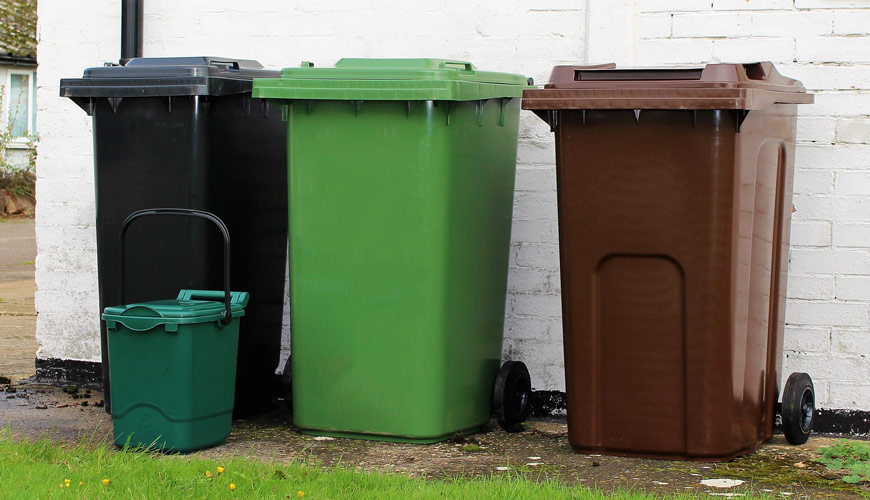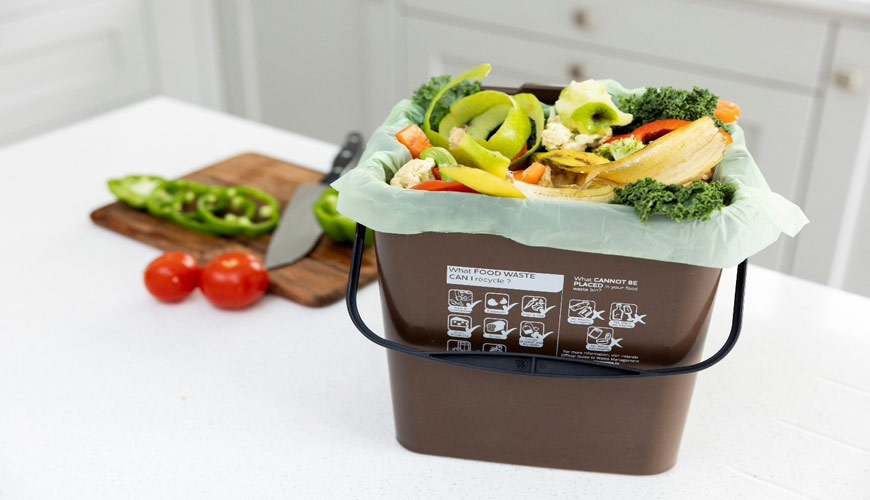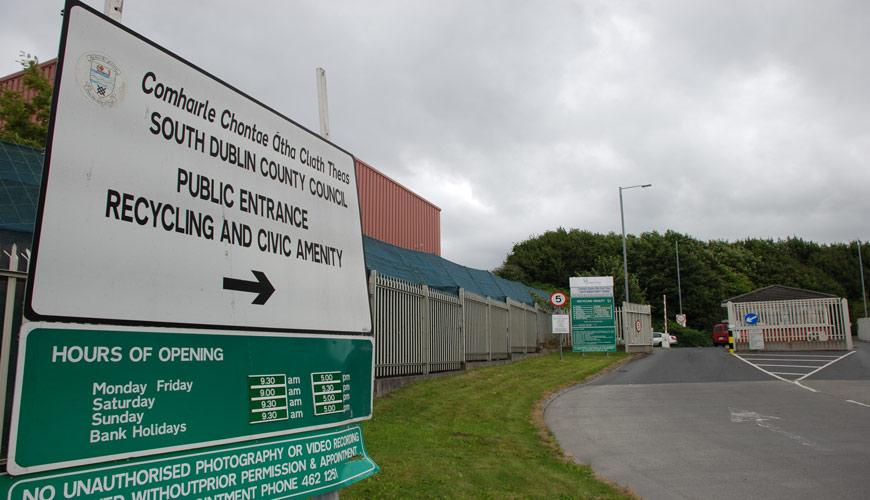Understanding Resource Management
In Ireland we produce more than 14 million tonnes of waste every year across all sectors. What many of us don't know is that waste is a resource, much of what goes in our recycling bins every year has value and is bought and sold on open markets.
The impact of our use of resources on climate change can be difficult to understand as it describes such a vast area of human activity. The drilling, mining, and removal of earth’s resources have largely shaped our modern world. Often these specialised processes are not ones we think about day to day, however we use these resources to power our societies and produce all the things that make up our lives, from buildings to mobile phones to clothing to food.
To reduce our impact on the climate we need to think differently about how much we consume.

Managing Waste
Managing your waste correctly is the first step. If it is managed responsibly and efficiently you will know how much you produce and be in a better position to reduce it and your impact on the environment.
In South Dublin we should all have 3 bins from our waste collector:
General Waste Bin
Recycling Bin - for your mixed dry recyclables. Make sure they are clean, dry and loose.
Organic Bin for your food and organic waste
The MyWaste website is Ireland’s official guide to managing waste and it is a useful tool to help you find information on local waste services, recycling facilities, as well as information on preventing, reusing and disposing of waste.
Reduce Waste
There are some simple steps we can take to reduce the amount of waste leaving our homes:
Food Waste: Food waste is a significant contributor to greenhouse gases – if it was a country, food waste would be the third largest emitter of greenhouse gases after USA and China.
In Ireland we waste about 1 million tonnes of food per year, that works out at about €700 for the average Irish household. Reducing food is also the easiest thing we can do to reduce our climate impact.
Food is lost at every step of the process from farming to production to householders – one third of all food waste in Ireland is in our homes.
Commonly wasted foods include:
- Salads – we throw out almost 50% of what we buy
- Meat & fish – expensive but we still throw out 10% of what we buy
- Potatoes – is the vegetable we throw out the most
- Yoghurts, milk, dairy – 10% of these are thrown out
For more information, tips and advice on food waste (including tips and recipes) visit stopfoodwaste.ie.

Repair/Reuse: Repairing broken items will reduce the amount of waste we produce. Reusing items we already have will lower the amount of new materials we create and purchase, which will also save us money. South Dublin County Council supports repairmystuff.ie where you can go to find a specialist repair service for a wide range of items.
Swap: The old saying “one man's trash, is another man's treasure” rings true. If you have something you are finished with, rather than disposing of it, check to see if someone else can make use of it.
Recycling: Preventing waste is the best environmental outcome, but when we do have waste, we have to consider what we do when getting rid of it. Recycling properly is key to the circular economy as it allows the materials you do throw out to be used again. It is important to use your bins correctly. If you are unsure of what you can put where, check out the Waste Management Guide here on www.mywaste.ie.
Glass can be recycled at your nearest bottle bank, locations of which can be found here.

The Ballymount Civic Amenity Site in Greenhills, Dublin 20 is operated by Panda on behalf of South Dublin County Council.
A range of recyclable materials are accepted at the facility free of charge, such as:
Cardboard, Waste Oil, Paper, Glass Bottles and Jars, Aluminium Beverage Cans, Plastic Bottles, Plastic Bags (with recyclable symbol), Textiles/Clothing, Ink Cartridges, Batteries (domestic and car), Fridges/Freezers, Electrical Appliances, Computer Equipment, White Goods (Washing Machines etc), Fluorescent tubes, Light bulbs, Calor Gas bottles.
No food contaminated plastic will be accepted, only clean, dry plastic will be accepted.
Other materials accepted with a charge:
Scrap Metal, Timber, Green Garden Waste, General Household Waste, Bulky Household Items (Furniture, Carpet etc.), Household Hazardous Waste (paint, detergents etc), Plasterboard, Mattresses.
Materials not accepted: Non-Household Hazardous Waste, Commercial Waste, Household Hazardous Waste in unlabelled containers, Soil.

Littering and Illegal Dumping
Littering and illegal dumping may feel like something that will not impact you if you do it, but the consequences are coming back to haunt everyone. Many dumped or littered materials end up polluting our local environment.
Much of it can end up in waterbodies and ultimately oceans. It is well documented how much of a dumping site our waters have become as aquatic life is killed through hazards like plastics or chemical pollutants.

